Queen's Speech promises more power devolution for Wales
- Published
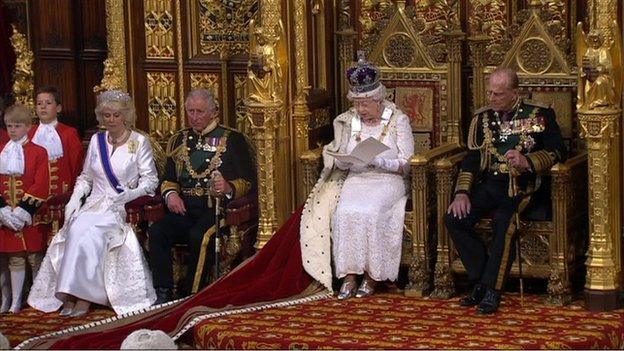
This was the first Queen's Speech under a Conservative majority government for 19 years
Plans to offer wide-ranging new powers to Wales have been announced in the Queen's Speech outlining the new Conservative government's priorities.
Decisions on some major energy projects including fracking will be handed to the assembly, along with taxi and bus regulation, and the voting age.
The Queen said the measures were part of a "strong and lasting constitutional settlement" across the UK.
Opposition parties have criticised the delay and limited scope of the powers.
Prime Minister David Cameron said the 26-bill package was a "programme for working people" that would create full employment and "bring our country together".
A bill to allow an "in-out" referendum on UK EU membership was included.
However, the prime minister has delayed plans to scrap the Human Rights Act, in order to avoid a potential confrontation with his own backbenchers.
Power pledge
The proposals for further devolution for Wales - covering energy, transport and the running of elections - reflect the plans outlined by Mr Cameron in the St David's Day announcement.
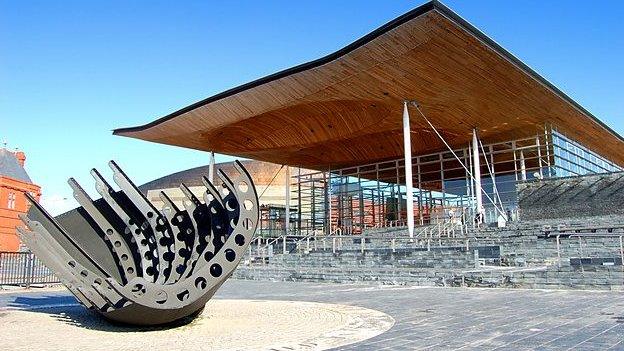
The assembly will have more control over its own affairs as well as energy and transport issues
Decisions over energy projects generating up to 350 megawatts of power on or offshore to be devolved - larger projects to remain the responsibility of the UK government
Transport - responsibility for ports, taxi regulation, registration of bus services and speed limits
Fracking - licensing for all onshore oil and gas exploration in Wales, including shale oil and gas
Elections - whether 16 and 17-year-olds should vote in assembly and local council elections
Assembly affairs - control over its name, size and the system used to elect its members
Permanence of the assembly and the Welsh government to be enshrined in law
Reserved powers model outlining the list of policies that remain under UK government control, with all other matters considered devolved
Welsh Secretary Stephen Crabb said: "Today's Queen's Speech will strengthen Wales' place within the United Kingdom by taking forward the St David's Day agreement.
"It boosts the engines of growth and puts working people centre-stage with radical measures to reward hard work.
"Our priority is to continue to secure the economic recovery for Wales and ensure all parts of the country share in it. That means investing in infrastructure, encouraging enterprise and backing small businesses."
A draft version of the new Wales Bill is to be published by the autumn, for consultation ahead of final legislation in 2016.
Carwyn Jones welcomes the prospect of a new Wales Bill
Labour First Minister Carwyn Jones said he was "pleased to see a Wales Bill proposed" and "pleased to know that it'll be presented in the autumn".
"Beyond that, of course, it's not the most substantial Queen's Speech of all," he said.
Plaid Cymru's parliamentary leader Jonathan Edwards denounced the Wales Bill as a "toothless package of powers" that reflected a "tinkering around the edges" of devolution rather than a "meaningful deal".
"There is no reason whatsoever why Wales should not be offered the same powers as those included in the Scotland Bill. We are not a second class nation," he said.
Jonathan Edwards says Wales must not be treated as a 'second class nation'
Reacting for the Liberal Democrats, Ceredigion MP Mark Williams welcomed the proposed bill as a "positive step for devolution in Wales".
But he urged the government not to "dither", claiming the Tories appeared to have broken Chancellor George Osborne's promise to deliver the bill within a hundred days of the election.
"The Liberal Democrats ensured devolution moved faster than it had done in any time over the previous decade - the new UK Tory Government can't allow that momentum to be lost," he said.
Mark Williams said more work was needed on the devolution plans
The assembly's presiding officer Dame Rosemary Butler welcomed the bill, but hoped that a move to a reserved powers model would "not reduce our ability to legislate in any way and offers us a settlement that lets us legislate with clarity and coherence for the good of Wales".
The devolution of more energy powers was welcomed by the conservation charity WWF as "an opportunity to fast track Wales to a low carbon economy".
Anne Meikle from WWF Cymru said: "Ministers in Cardiff Bay can now do more to support the vital transition to renewable energy, creating jobs and reducing greenhouse gas emissions."
Stephen Crabb said that there would be a new Wales Bill within the first year of this parliament.
On the transfer of fracking licensing to Welsh ministers who oppose fracking, industry body United Kingdom Onshore Oil and Gas struck a positive note.
Its chief executive Ken Cronin said: "We look forward to working with all governments of the United Kingdom in promoting the exploration and development of much needed shale gas for the benefit of all residents of the UK."
Frances Jenkins of the group Frack-Free Wales welcomed the "excellent news" but said Labour Welsh ministers would have "a responsibility to implement a ban on fracking, because it is not safe".
Meanwhile Janet Jones, policy chair of the Federation of Small Businesses Wales, said the organisation welcomed the prospect of further powers and hoped for "greater clarity about where responsibilities lie" between Wales and Westminster.

Analysis by David Cornock, BBC Wales Parliamentary correspondent
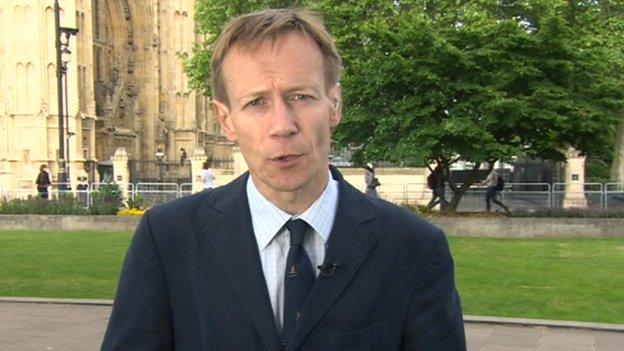
Scotland and Wales may have featured in the same sentence in the Queen's Speech but the two countries are being offered rather different devolution - at different speeds.
The Scotland Bill is expected to be published on Thursday, with a statement to MPs on the transfer of taxation and welfare powers. The Wales Bill is expected - in draft form - in the autumn with "the real legislation" to be debated next year.
The change to a "reserved powers" model means effectively re-writing the devolution settlement, and ministers say they'll take their time to get it right even if they miss the "100 days" target set by Chancellor George Osborne.
The other key question is "fair funding" - the UK government says the details of its pledge on this will come alongside the next spending review.
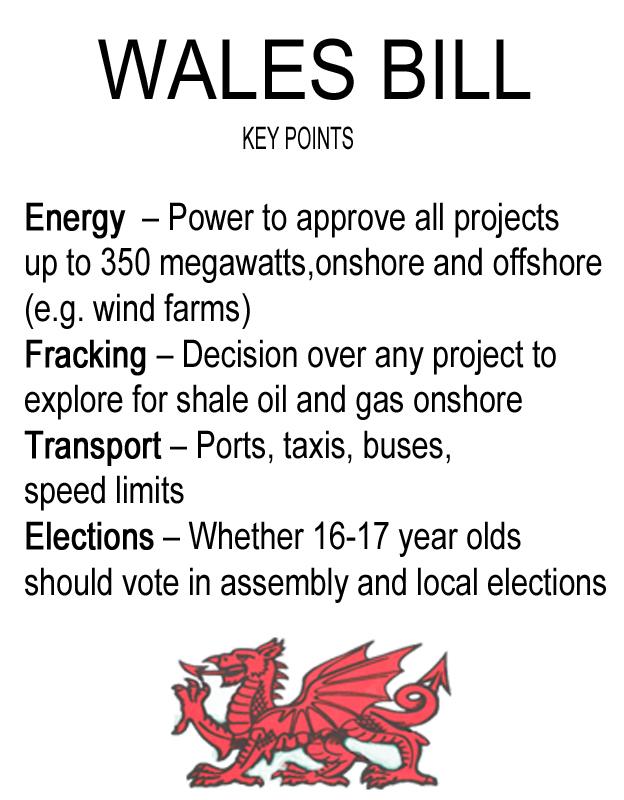
- Published27 May 2015
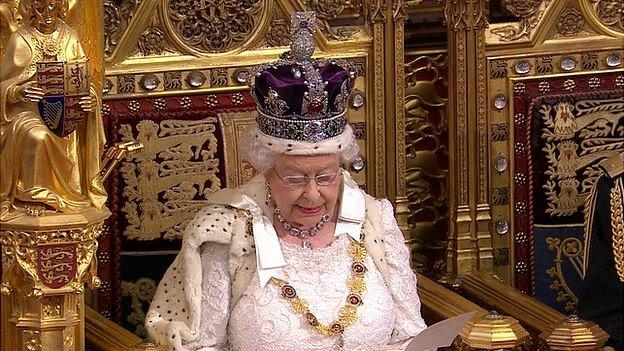
- Published27 May 2015
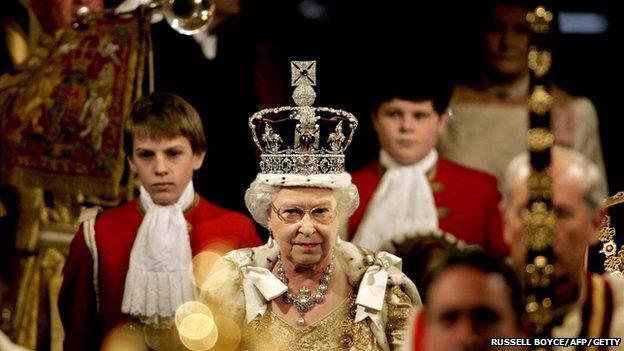
- Published14 May 2015
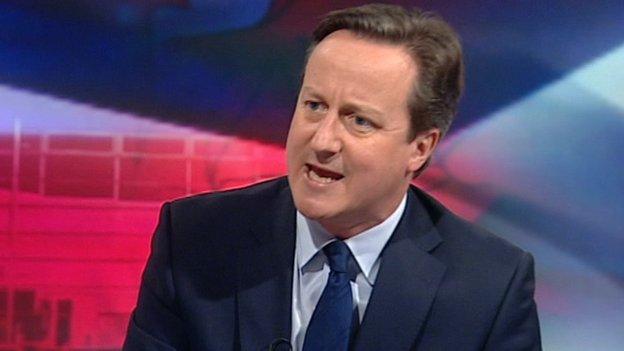
- Published17 July 2024

- Published12 May 2015
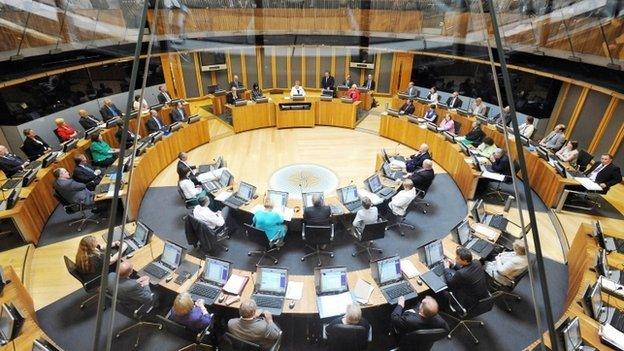
- Published11 May 2015